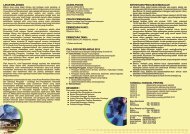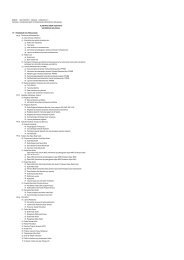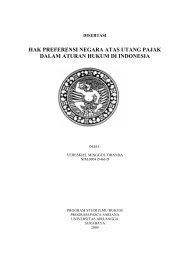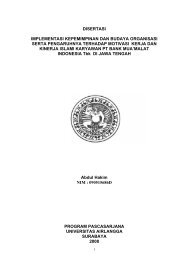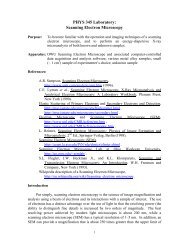Nietzsche's Naturalistic Ethics - UNAIR | E-Book Collection
Nietzsche's Naturalistic Ethics - UNAIR | E-Book Collection
Nietzsche's Naturalistic Ethics - UNAIR | E-Book Collection
You also want an ePaper? Increase the reach of your titles
YUMPU automatically turns print PDFs into web optimized ePapers that Google loves.
what Nietzsche’s ethical naturalism amounts to is the goal of this study. 3 Suffice it for the timebeing to quote two of Nietzsche’s most explicit statements of his naturalism. Both statements speakfor themselves. The first statement is from Beyond Good and Evil:But we hermits and marmots have long persuaded ourselves in the full secrecy of a hermit’s conscience thatthis worthy verbal pomp, too, belongs to the old mendacious pomp, junk, and gold dust of unconscious humanvanity, and that under such flattering colors and make-up as well, the basic text of homo natura must again berecognized. To translate man back into nature; to become master over the many vain and overly enthusiasticinterpretations and connotations that have so far been scrawled and painted over the eternal basic text of homonatura; to see to it that man henceforth stands before man as even today, hardened in the discipline of science,he stands before the rest of nature, with intrepid Oedipus ears, deaf to the siren songs of old metaphysical birdcatchers who have been piping at him all too long, ‘you are more, you are higher, you are of a different origin!’(BGE 230)The second statement is from the Antichrist:We have become more modest in every way. We no longer derive man from “the spirit” or “the deity;” we haveplaced him back among the animals. We consider him the strongest animal because he is the most cunning: hisspirituality is a consequence of this. (...) Man is by no means the crown of creation: every living being standsbeside him on the same level of perfection. And even this is saying too much: relatively speaking, man is themost bungled of all the animals, the sickliest, and not one has strayed more dangerously from its instincts. Butfor all that he is course of the most interesting. (A 14)3 The reader should keep the following definitions in mind (following Darwall (1998),chapter 3). Metaphysical naturalism holds that nothing exists beyond what is open to empiricalstudy and, consequently, that ethical thought and feeling are empirically ascertainable facts aboutthe world. Among the metaphysical naturalists, the ethical naturalist is distinguished by hisbelief that value is an aspect of nature. I regard Nietzsche as an ethical naturalist, and, onceagain, exploring what this amounts to is the goal of this study. For discussions of naturalism, cf.Railton (1990) and Darwall (1998), chapter 3; for a defense of Nietzsche’s naturalism, see Leiter(2002), chapter 1. See also TI, Anti-Nature, 2 and Skirmishes 33; and EH Destiny 7. AsRichardson (1996), p 46 (note 59) notes, Nietzsche’s commitment to naturalism goes at least asfar back as 1872 (“Homer’s Contest”).3




